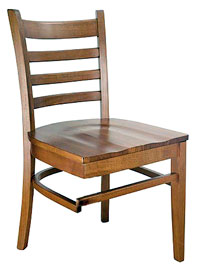 |
For the chair to be stable, all four legs have to be strong. One wobbly leg makes all the others rickety as well, and the chair itself becomes unbalanced. In Nepal, the chair of state has always been unhinged, be it during the feudal period, the Panchayat era, the post-1990 decade of democracy, and the current precarious transition.
But after 27 May it has become even more unstable. We don't just not have a constitution, the executive is stop-gap, there is no legislature, the Supreme Court has been rattled by the unresolved assassination of a justice and soon a dozen vacant justice posts, and in the media sector oligarchs are snapping up newspapers. No wonder, there is a sense of foreboding and aimless drift.
To make things worse, constitutional bodies are also soon going to be headless as incumbents retire. The acting chief election commissioner is due to step down on the very month there are supposed to be CA elections in November, and the Public Service Commission will also soon have no chief. The anti-corruption watchdog, the CIAA, has been without a head since 2007.
If all this wasn't bad enough, there is a huge crisis looming in the civil service as a dozen senior secretaries face mandatory retirement later this year. Leaving aside the absurdity of retiring off bureaucrats who have amassed a wealth of experience and maturity and are in the prime of their career, there is also the issue of the impact such a mass exit will have on the civil service which has been holding things together during this prolonged period of political instability.
Among the 12 retirees, only one gets to stay on if selected to be chief secretary. Fortunately, the candidates said to be most likely to get the top job not just have political connections, but are both competent. The names of Irrigation Secretary Brinda Hada and Industry Secretary Umakant Jha are being floated as likely candidates for the chief secretary's post. Since all 12 have equal seniority, it seems like the appointment will boil down to political give-and-take.
All this is reason enough for concern because the current deadlock in the political arena has affected the budget. Prime Minister Bhattarai wants a full-fledged budget of about Rs 430 billion, so he can kick-start development and get the economy going. The NC and UML smell a rat, and suspect he wants to influence elections by allocating pork-barrel funds. A one-third expenditure plan of the actual budget last fiscal year will take care of government salaries and essential development projects. The private sector is understandably worried that budgetary uncertainties will hit investment.
To be sure, nowhere does a caretaker government in the absence of a parliament have the right to announce a full budget by ordinance. It will have to pass a budget that just meets regular expenditures until elections are held, and that is probably what will happen. But for that the civil service has to be efficient and experienced.
The budget, constitutional and civil appointments are all tied to political negotiations over a successor to the Bhattarai government and how to divide up the cabinet. The prime minister seems to be hung up on hanging on, and the NC will have to come up with something better than just to say "It's our turn". In fact, the NC can't even agree on its own prime ministerial candidate.
However desirable an all-party government may be, the reality is that the parties are hopelessly split among and within themselves. Prime Minister Bhattarai has to weigh whether stepping down will clear this log jam, pave the way for elections, and restore a stable state.
Read also:
Rain check
On a tight budget, RUBEENA MAHATO
Budgetary uncertainties and mass retirement of secretaries will set back governance
Show me the money, PAAVAN MATHEMA
And again, political differences are forcing us to settle for a partial budget


